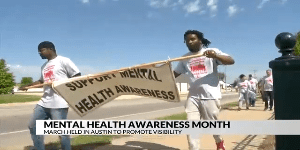For over a week now, the community of Sulphur has been grappling with the aftermath of severe weather that ravaged the area. The storms tore through eastern Oklahoma, leaving a trail of destruction in their wake. First responders from all corners of the state have been working tirelessly to assist the community in recovering, putting in long 12-hour shifts sifting through the wreckage of buildings and homes.
The demanding and emotionally taxing nature of this work has raised concerns about the mental health of these first responders. State Trooper Matthew Krupczyk, who has been on the ground since the beginning of the disaster, acknowledges the challenges faced by first responders. He stated, “It’s been pretty difficult cause you’re dealing with people that lost their livelihood, they lost their homes, they lost their businesses, you got to worry about people looting.”
In addition to managing their own mental wellbeing, first responders are also focused on helping hundreds of individuals who have lost everything in the storms. Krupczyk emphasized the importance of ensuring safety in the community by stating, “We want to make sure that business owners aren’t going into their business preemptively or too early, and it’s actually a danger zone because it’s half-collapsed or if there’s live electricity.”
First responders are not only prioritizing public safety but also their own mental health needs. FEMA is urging those in Sulphur who require disaster assistance to reach out by calling 1-800-621-3362. The community and first responders continue to work diligently together to navigate the challenges brought on by this natural disaster while supporting each other in the recovery process.


